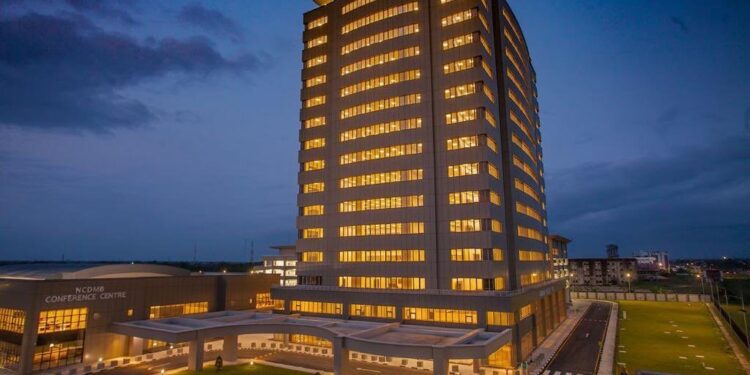Bayelsa State, located in the heart of the Niger Delta, is a state rich in natural resources and cultural heritage. While historically known for its significant contribution to Nigeria’s oil and gas sector, Bayelsa is increasingly recognizing the need for economic diversification and is actively promoting local businesses and attracting investments in various non-oil sectors. This strategic shift aims to create a more resilient and sustainable economy, generate employment opportunities, and improve the overall standard of living for its citizens.
Untapped Potentials and Key Investment Sectors:
Bayelsa State possesses a range of underutilized resources and strategic advantages that present compelling investment opportunities:
- Agriculture: With fertile arable land and abundant freshwater resources, Bayelsa has immense potential in agriculture. Key areas for investment include:
- Mechanized farming and agro-processing: Large-scale farming of crops like cassava, rice, plantain, and sugarcane, coupled with processing facilities, can boost food production and create value-added products.
- Fisheries and aquaculture: The state’s extensive coastline, rivers, and creeks offer opportunities for commercial fishing, fish farming (including shrimp and lobster for export), and fish processing and canning.
- Other agricultural ventures: Investments in commercial snail production, local gin distillery from raffia palm, palm wine bottling, and oil extraction from coconut and palm kernels also hold promise.
- Maritime and Blue Economy: Bayelsa’s over 800km coastline and proximity to major Atlantic trade routes position it as a strategic hub for maritime activities. Investment opportunities include:
- Port development and operations: The ongoing development of deep seaports and the dredging of waterways can enhance cargo efficiency and facilitate trade.
- Boat building and maintenance: Establishing modern boat building facilities and maintenance services can cater to the needs of the oil and gas industry, transportation, and fishing sectors.
- Cold chain logistics: Developing cold storage and transportation infrastructure is crucial for preserving and distributing seafood and agricultural produce.
- Tourism: Bayelsa’s unique ecosystem, characterized by lush mangrove forests, natural beaches, and rich cultural heritage, offers significant potential for eco-tourism and cultural tourism. Investment in resort development, eco-tourism ventures, and the promotion of cultural festivals can attract both domestic and international tourists.
- Manufacturing and Processing: Diversifying beyond raw material extraction requires investment in manufacturing and processing industries. Opportunities exist in:
- Modular refineries and gas processing: Utilizing the state’s natural gas resources for local refining and processing can create jobs and reduce reliance on imported petroleum products.
- Petrochemical-based industries: The availability of petrochemical products presents opportunities for manufacturing plastics, polythene nylons, and PET bottles.
- Agro-processing: Establishing facilities for processing cassava into pellets, chips, flour, and starch, as well as processing other agricultural produce, can boost the local economy.
- Other manufacturing: Investments in paper and pulp manufacturing, furniture production, water bottling and treatment plants, and the production of building materials like clay bricks can meet local demand and potentially serve wider markets.
- Power Generation: Bayelsa has significant gas reserves that can be leveraged for power generation. Investing in gas-fired power plants can help address the state’s energy needs and potentially supply power to the national grid. Renewable energy sources like solar and tidal energy also hold long-term potential given the state’s geography.
Government Support and Initiatives:
The Bayelsa State Government recognizes the importance of fostering a conducive environment for local businesses and attracting investment. Several initiatives and support mechanisms are in place:
- Ministry of Trade, Industry and Investment: This ministry is actively working to drive economic diversification, promote industrialization, and attract strategic investments. It aims to create an investor-friendly ecosystem through policy innovation and technology adoption.
- Bayelsa Investment Promotion Agency (BIPA): Established to serve as a vehicle for investment generation, BIPA promotes Bayelsa State as a preferred investment destination and provides facilitation services to investors.
- SME Support Schemes: The government has partnered with institutions like the Bank of Industry (BOI) to launch loan schemes with favorable single-digit interest rates to support local businesses and enhance exports. The UNDP has also provided significant financial support to MSMEs in the state.
- Grants and Empowerment Programs: The state government has implemented programs providing direct financial grants to small-scale entrepreneurs across all local government areas to help them expand their businesses.
- Ease of Doing Business Reforms: Bayelsa State is actively working on reforms to improve the ease of doing business, making it more attractive for investors.
- Infrastructure Development: Investments in roads, deep seaports, and power infrastructure are ongoing to create a more enabling environment for businesses to thrive.
Challenges and Mitigation Strategies:
Despite the numerous opportunities, Bayelsa State also faces certain challenges in attracting investment and supporting local businesses:
- Infrastructure Deficit: Inadequate infrastructure, including roads, power supply, and water access, can hinder business operations. The government is prioritizing infrastructure development to address these gaps.
- Security Concerns: Insecurity in the Niger Delta region has historically been a concern for investors. The government is working to ensure a safe and secure environment for businesses.
- Access to Finance: Many local businesses, especially SMEs, face challenges in accessing adequate funding. Government-backed loan schemes and partnerships with financial institutions aim to alleviate this issue.
- Management Skills and Training: Lack of managerial skills and adequate training can limit the growth and sustainability of local businesses. Capacity-building programs and mentorship initiatives are crucial.
- Taxation and Regulatory Environment: Complex tax policies and licensing regulations can pose challenges for businesses. The government is reviewing and streamlining these processes to create a more business-friendly environment.
Success Stories and Future Outlook:
While comprehensive data on numerous individual business success stories might be limited in readily available public sources, the government’s commitment to supporting local entrepreneurs and attracting investment is beginning to yield positive results. Initiatives in agriculture, fisheries, and small-scale manufacturing are empowering local communities and contributing to economic diversification.
The future of local business and investment in Bayelsa State looks promising. With its abundant natural resources, strategic location, and a government actively pursuing economic diversification and creating a supportive business environment, Bayelsa is poised to become a significant hub for various non-oil sectors. By addressing existing challenges and capitalizing on its unique strengths, Bayelsa State can unlock its full economic potential and create a prosperous future for its people. Sources and related content











